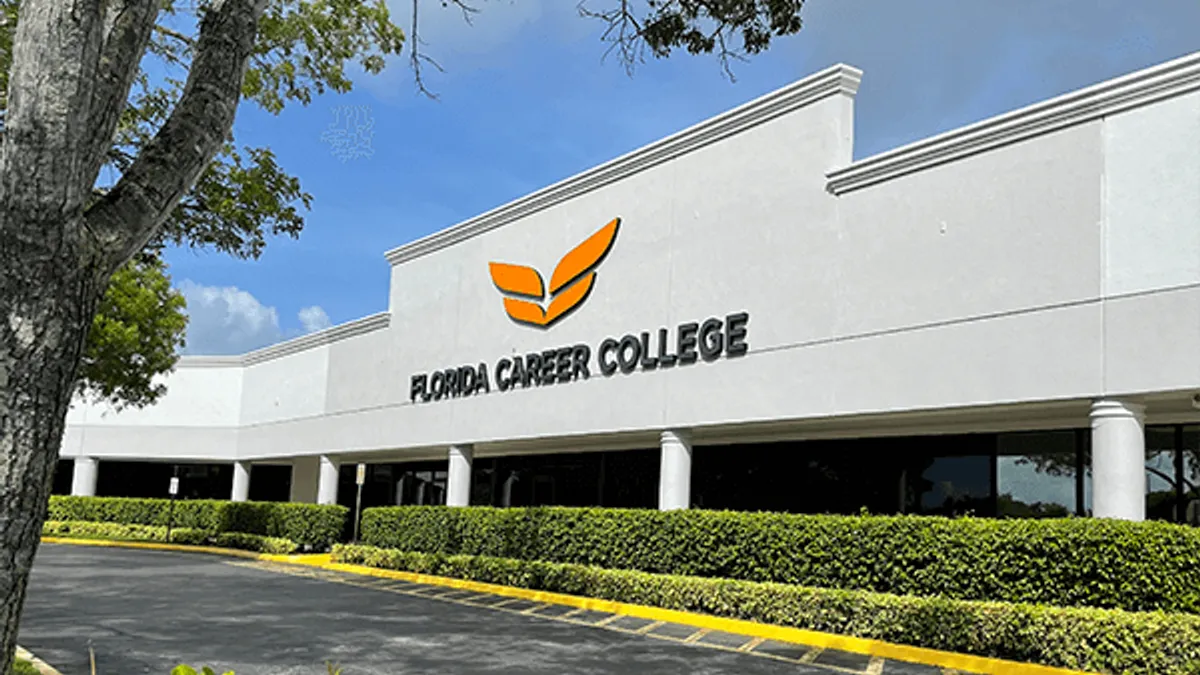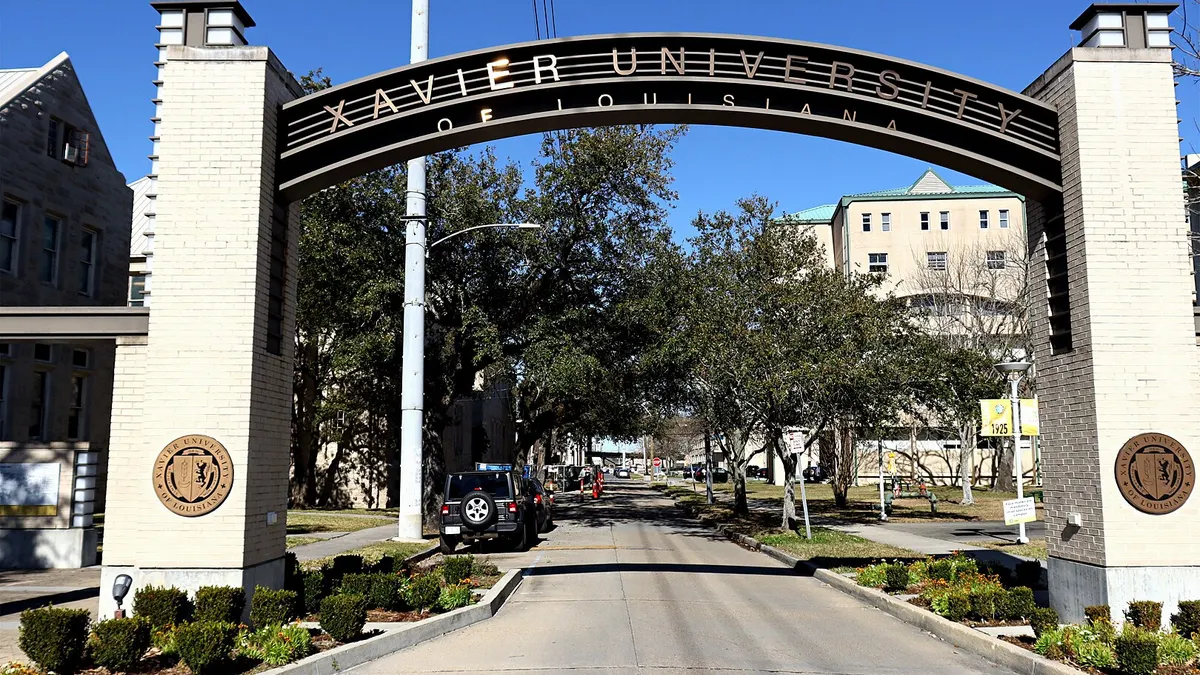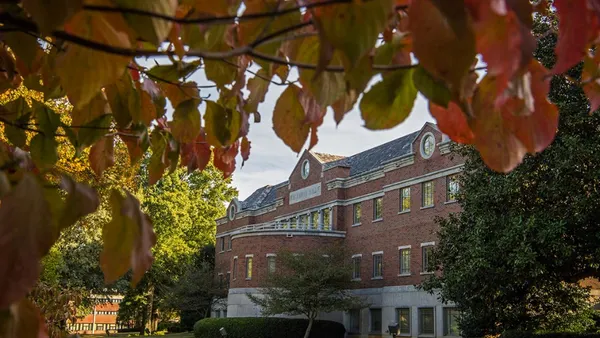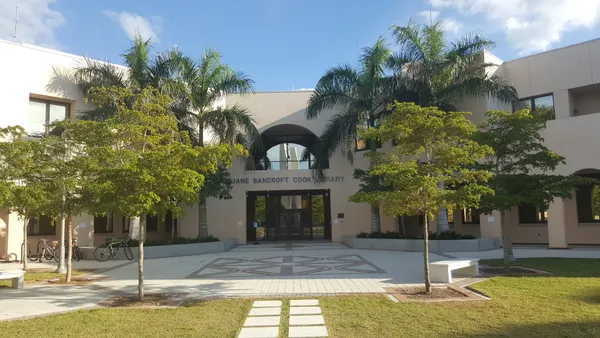Dive Brief:
- The U.S. Department of Education said Tuesday it is cutting off a Florida for-profit college from participating in federal student aid programs, denying it key revenue without which it may not survive.
- Florida Career College, or FCC, improperly allowed students without a high school diploma or equivalent credential to test into eligibility for federal aid, the Education Department said. The agency accused proctors who administered the exams — known as Ability-to-Benefit, or ATB, tests — of manipulating the results for the college, “including by filling in or changing answers after students finished their tests, helping students during testing or taking tests for them, and permitting students to use calculators in violation of testing rules.”
- To minimize disruptions to FCC students, the Education Department will allow them to continue using federal aid through September if the institution meets certain conditions, like developing transfer agreements with other colleges. If FCC opts not to take this route, it will lose access to federal aid at the end of April.
Dive Insight:
Denying Florida Career College student aid represents one of the most significant enforcement actions the Office of Federal Student Aid, or FSA, has ever taken. It matches the Biden administration’s stated goals of holding poorly performing colleges — namely for-profits — accountable.
FSA periodically rejects colleges from participating in student aid programs. However, rarely has it denied financial aid access to such a large institution. As of late 2022, FCC enrolled about 5,000 students in short-term programs, according to the Education Department, across a dozen campuses in Florida and Texas.
Joe Cockrell, a spokesperson for the college, said in an emailed statement that the Education Department’s decision is “myopic and misguided.”
The department “risks harming thousands of students seeking economic stability and a better life,” Cockrell said.
“For more than 40 years, our singular focus has been quality career training programs that meet or exceed all state and Federal regulations so that people can find a good job in their chosen career path," he said. "We intend to fight this unjust and inequitable decision vigorously on behalf of our students and the communities we serve.”
Cockrell declined to answer further questions.
How the college intends to fight the department is unclear. The Education Department said FCC has until April 25 to ask it to reconsider.
FCC was once run by the for-profit operator FCC Holdings Inc., which in 2020 settled with the Education Department for $8 million in a bankruptcy case. The company allegedly had predrawn federal financial aid money based on inaccurate enrollment projections.
In 2014, FCC was sold to International Education Corp. which runs several other for-profit colleges.
The college’s legal troubles did not stop with the acquisition. Former students sued FCC in 2021 over allegations it aggressively targeted Black applicants through deceptive advertising and leaving them saddled with significant debt. The lawsuit did not succeed.
FCC’s current round of troubles escalated last year when the Education Department restricted how the college could receive federal aid dollars. That July, the department required the college to start paying students financial aid directly from its own finances and then seek reimbursement with the agency, a process known as heightened cash monitoring. It signals the Education Department lacks faith in a college’s operations and financial health.
The department said Tuesday that it investigated the college and found that it and International Education Corp. pressured proctors to pass students taking the ATB tests “and otherwise inappropriately inserted themselves into ATB test administration and proctor training in order to increase passage rates and subsequent enrollments.”
FCC took in many students who passed the ATB test — since 2018, between 43% and 48% of the college’s students enrolled through the exam, the Education Department said.
The decision means FCC can no longer enroll new students using federal grants, loans or work study money.
The department’s actions could lead to FCC losing a massive chunk of its revenue. For the college’s fiscal year that ended December 2020, it received more than $99 million in student aid, accounting for 87% of its revenue, according to public records.
“Federal Student Aid is holding Florida Career College accountable for taking advantage of some of the most vulnerable students,” FSA Chief Operating Officer Richard Cordray said in a statement. “Despite the school’s actions, they have an opportunity to do right by some of these students.”














